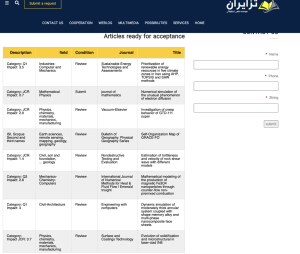
Would you consider a donation to support Weekend Reads, and our daily work?
The week at Retraction Watch featured:
- Paper with authorship posted for sale retracted nearly two years after Retraction Watch report
- Spider researcher Jonathan Pruitt faked data in multiple papers, university finds
- Retractions should not take longer than two months, says UK Parliament committee
- Prominent nanoscientist retracts paper after PhD students flagged error
- Article that assessed MDPI journals as “predatory” retracted and replaced
Our list of retracted or withdrawn COVID-19 papers is up to more than 300. There are now 40,000 retractions in our database — which powers retraction alerts in EndNote, LibKey, Papers, and Zotero. The Retraction Watch Hijacked Journal Checker now contains 200 titles. And have you seen our leaderboard of authors with the most retractions lately — or our list of top 10 most highly cited retracted papers?
Here’s what was happening elsewhere (some of these items may be paywalled, metered access, or require free registration to read):
Continue reading Weekend reads: Paying cash to boost rankings; billions lost from reformatting manuscripts; ‘the truth police’






